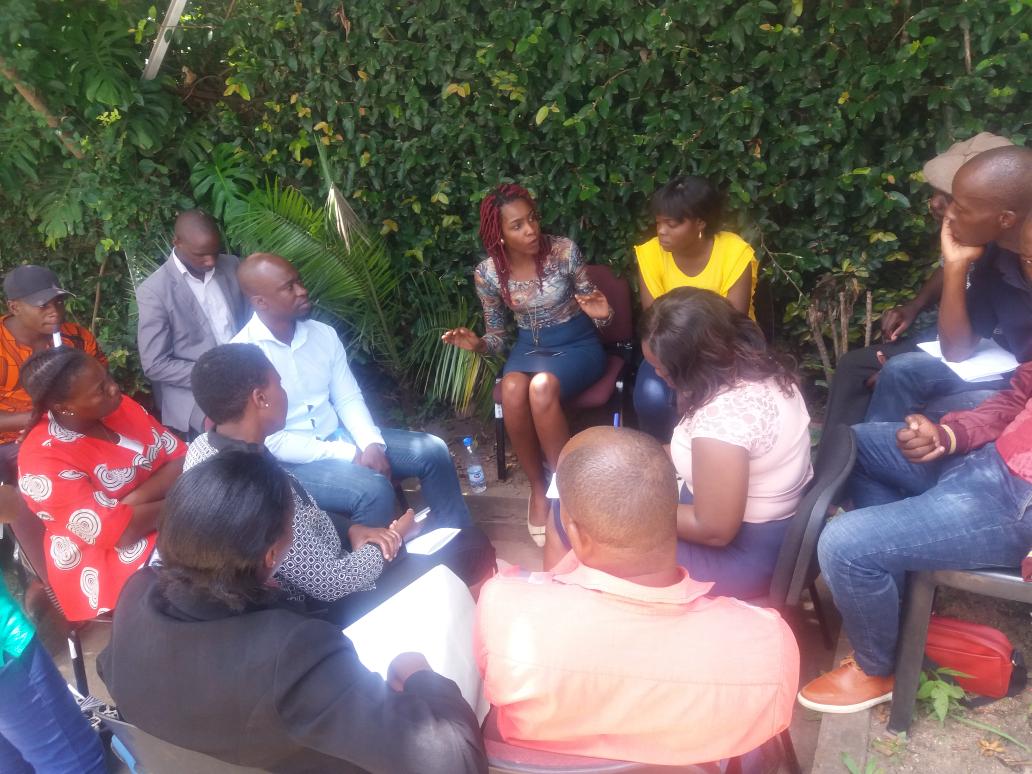By Joyce Mukucha
The National Peace and Reconciliation Commission (NPRC) is going around the country conducting consultations creating the strategic plan which provide an opportunity for youth to participate on peace building as contained in the Declaration of Youth Agenda Document.
The commission’s aim also focuses on influencing the outcome of the process given by the development of the United Nations Security Council Reconciliation (UNSCR) resolution 2250 which locates the role of youth in peacebuilding.
The current consultations being undertaken by NPRC to create the commission’s strategic plan provide an opportunity for youths to influence policy-based submissions of youths during the African Union (AU)-European Union (EU) Summit Consultations on the pillars of peace and security.
According to a report by the Action Aid International Zimbabwe, titled ‘The dynamics of Devolution in Zimbabwe’, youths are among groups that are marginalised in local decision making.
It states that political space for youth participation and decision making is limited and difficult to navigate with local councils is not proactive in engaging the youth.
Challenges emerge which include: inadequate representation in decision making for public office will enable them to be actors to shape effective solutions and increase the equality and efficiency of efforts in peace making bodies, side-lining of youth issues and lack of space and platforms to express their views and concerns on governance are being encountered.
Speaking during the consensus meeting held in Harare on the 22nd of February 2018, by National Association Youth Organisation (NAYO) in partnership with NPRC, Dr Golden Chekenyere, the Commissioner of NPRC said there was need to catch youths whilst they are young for them to become ambassadors of peacebuilding in the country.
“Youths should play a major role according to the UNSCR 2250 and the Abidjan Youth Declaration. Their inclusion at all stages of policies and implementation including running for public office will enable them to be actors to shape effective solutions, and increase the quality and efficiency of efforts in peace,” said Chekenyere.
Misheck Gondo, the National Director of NAYO said the workshop was important as it builds a strategy on NPRC. He said young people should have a strategy on how they were going to contribute and engage with the commission.
“Young people have been affected from 2000 elections violence and their parents were also affected through Gukurahundi. So this needs a holistic approach. That is why we are moving with the concept which says ‘leave no Youth Behind’ meaning to say in all national processes young people need to be included.,” Gondo said
The youth leader said they were gathering young people from different political parties not only to become beneficiaries but to become leaders as well.
“We are connecting young people, he said from different communities, churches, in business as well as students and people living with disabilities. We are going to craft our own submission to the NPRC and our own strategy so that we replicate it around the country to ensure young people participate. We will make sure that we achieve our goal. We believe that as we continue to push we will get there, we are going to be monitoring what will be happening since youths are critical when it comes to the issue of peace,” he said.
He added that youths were energetic actors to achieve peace, good governance, improved taxation and reinvestment of private capital gains in development and social goals.
Munyaradzi Chitsuwa, the programmes coordinator for Youth and Peace Development mentioned that UNSCR focus on enabling that youth participate actively to conciliate disputes among communities.
“The resolution of UNSCR states that young men and women in Zimbabwe must curb conflicts that arise in different societies. Looking at the economic situation of the country, we can witness that many youth are unemployed and this create conflicts so there was need for youth to become the ambassadors of peace.
“The resolution has five pillars which include partnerships, prevention, re-engagement, dis-engagement and protection. Thereby rights of young people must be respected and provide them with social support cohesion. Youth at all levels must participate in prevention and resolution of conflicts, he said”
Both the summits of the (AU )and (EU) for youths and the Heads of State are said to have made strong commitments to enable the participation of youth in governance processes given the strong link between peace and development.
The youths who participated in the workshop suggested that NPRC should implement mechanisms, justice and punitive systems for sustainable and long lasting peace. They indicated that there was need for the commission to incorporate the revealing of truth basing on what will be happening in political violence.
Young people shared views they thought NPRC should uphold in the reflection of UNSCR resolution 2250. They discussed the implications of non-youth participation to a national reconciliation process and identified where there were gaps for peace, healing and reconciliation to prevail in the country.
